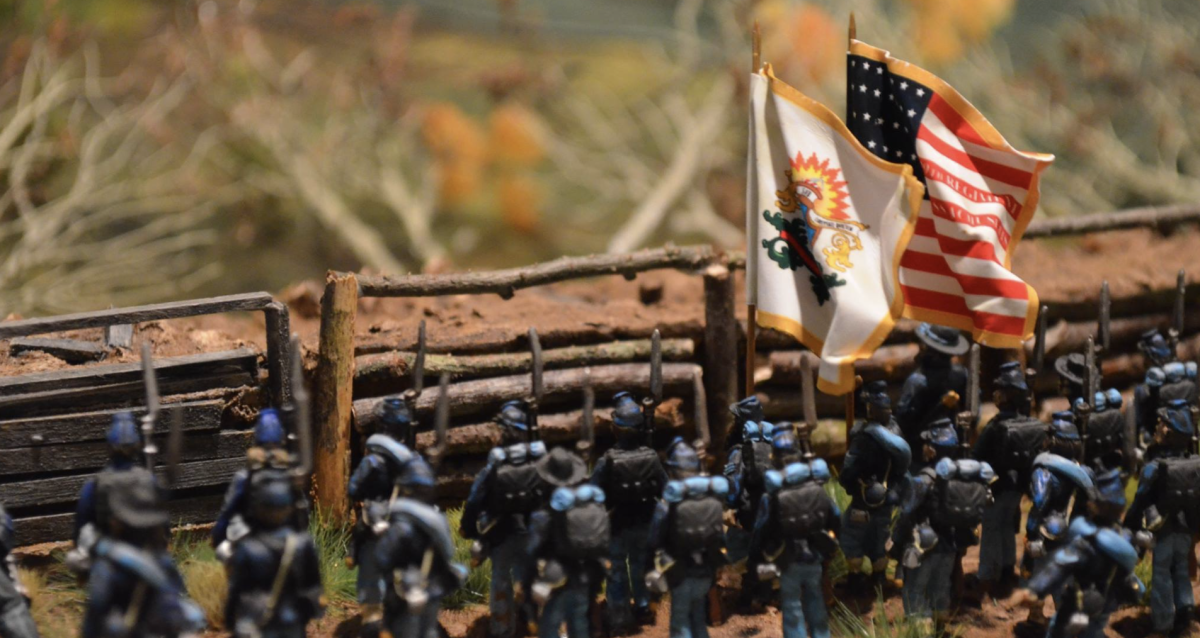
Brigadier-General States R. Gist was a descendant of that gallant Marylander, Gen. Mordecai Gist, who distinguished himself at the battle of Camden in 1780, and at the Combahee in 1782, and subsequently resided at Charleston, at his death leaving two sons who bore the names of Independent and States.
At the organization of the army of South Carolina early in 1861, States R. Gist was assigned to the position of adjutant and inspector general, in which capacity he rendered valuable service in the preparation for the occupation of Charleston harbor and the reduction of Fort Sumter.
He went to Virginia as a volunteer aide to General Bee, and at the critical moment in the first battle of Manassas, when Gen. J. E. Johnston rode to the front with the colors of the Fourth Alabama at his side, Beauregard relates that “noticing Col. S. R. Gist, an aide to General Bee, a young man whom I had known as adjutant-general of South Carolina, and whom I greatly esteemed, I presented him as an able and brave commander to the stricken regiment, who cheered their new leader, and maintained under him to the end of the day, their previous gallant behavior.”
Subsequently he resumed his duties as adjutant-general, organizing South Carolina troops for the war, until in March, 1862, he was commissioned brigadier-general in the Confederate service, and ordered to report to General Pemberton, then in command of the department. He was after this on duty on the South Carolina coast, in command east of James island in June, on that island from July; temporarily in command of the first district, and in December, 1862, in command of the troops ordered to the relief of Wilmington, until May, 1863, when he was ordered to take command of a brigade and go to the assistance of General Pemberton in Mississippi.
Reaching Jackson his command formed part of the troops under J. E. Johnston, took part in the engagement of May 14th at Jackson, marched to the Big Black river just before the surrender of Vicksburg, and then returning to Jackson was besieged by Sherman. His brigade comprised the Forty-sixth Georgia, Fourteenth Mississippi and Twenty- fourth South Carolina, the Sixteenth South Carolina soon afterward being substituted for the Mississippi regiment, and was assigned to the division of Gen. W. H. T. Walker.
He fought gallantly at Chickamauga, commanding during part of the battle Ector’s and Wilson’s brigades, his own brigade being led by Colonel Colquitt, and on Sunday commanding Walker’s division. At an important stage of the fight Gen. D. H. Hill called for Gist’s brigade for dangerous duty, in the performance of which it suffered severely.
He continued in conspicuous and valuable service; during the battle of Missionary Ridge commanded Walker’s division, and throughout the Atlanta campaign of 1864 was identified with that division. After the fall of General Walker he was transferred to Cheatham’s division, which he commanded for some time during the fall campaign of that year.
At the terribly destructive battle of Franklin, Tenn., he was one of the noblest of the brave men whose lives were sacrificed. Attended by Capt. H. D. Garden and Lieut. Frank Trenholm, of his staff, he rode down the front, and after ordering the charge and waving his hat to the Twenty-fourth, rode away in the smoke of battle, never more to be seen by the men he had commanded on so many fields. His horse was shot, and he was leading the right of the brigade on foot when he fell, pierced through the heart.

Source: Confederate Military History, vol. VI, p. 397

Hi Kraig,
Thank you for the article on General Gist. I found it while searching for information on Frank (Francis) Trenholm who I have an interest in having studied the life of his father George Trenholm. Hard to find too much on Frank who, as you’ll know, held Gist after he was hit. I know he survived the war and went on to marry soon after despite still being very young. I’ve seen one reference to him also being hit at Franklin but no idea how seriously and if he proceeded to Nashville. Any pointers on where I might check this out appreciated.
I had planned to be in Franklin this month but I live in the UK so for obvious reasons that’s on hold. I still hope to get back out there maybe in the autumn or next spring and would certainly be interested in a tour at that time. I’ve visited Franklin in the past but want to dig deeper this time.
kind regards,
Richard